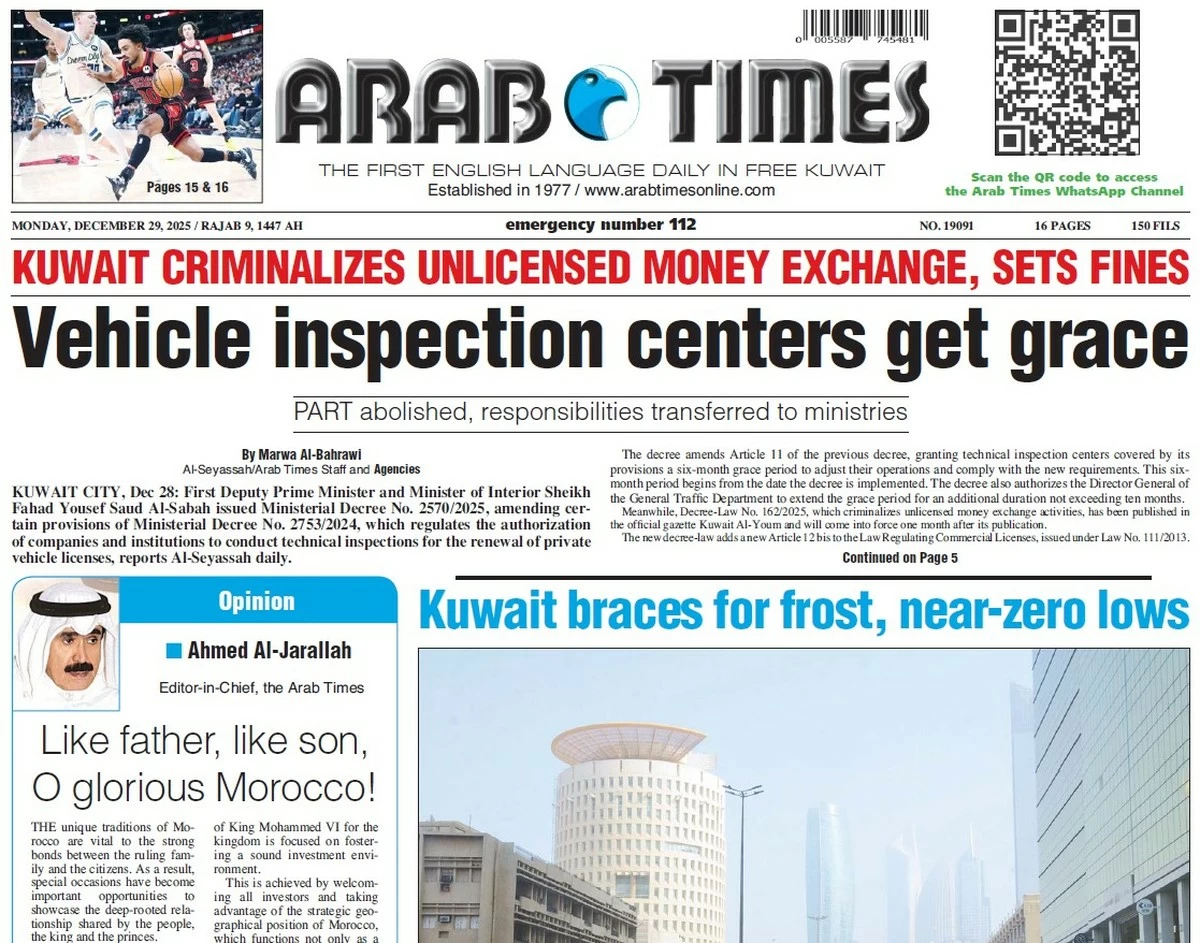19/08/2024
19/08/2024
IN LINE with the phrase “Light at the end of the tunnel,” observers in decision-making corridors believe that October will witness the implementation of executive decisions based on high-level orders given to the Council of Ministers and other institutions. This will allow for executing major projects based on a specific, productive vision.

Developments will include improvements to external roads and infrastructure, which have long been neglected but are crucial for local investment. Additionally, all support and subsidies will undergo serious review to establish a clear vision and a new mechanism to minimize annual financial waste. Only the needy and low-income earners should benefit from subsidies for electricity, supplies, or other forms of support that have burdened public finances and contributed to financial deficits for decades.
To improve state revenues, decision-makers suggest that the Public Institution for Social Security will undergo significant changes, including amendments to its law and leadership, and supporting it with expertise and minds that realize the importance of investments in infrastructure, entertainment projects, and other initiatives that help stimulate local investment.
Additionally, efforts will be made to mitigate risks from foreign investments to shield them from international and local crises. There are several ideas in this regard including Kuwait’s need for a large workforce to implement major projects. At the same time, there is pressure on residential areas, making it crucial for the Public Institution for Social Security to develop labor cities. Such development would reduce direct interactions between expatriates and Kuwaiti citizens and families, as is currently happening. Investments by the Public Institutions in Social Security could stimulate economic activity.
It has the potential to invest in residential cities, industries, and other projects, similar to initiatives in other Gulf countries. These nations invest in such projects and allow for long-term installment payments for housing, with the state taking care of the land only. To achieve this, it is essential to implement agreements with major companies, both Chinese and Western, that have been stalled for years due to disagreements between the National Assembly and successive governments. This presents an opportunity for Kuwait to break free from the constraints it has faced over the past three decades.
Also, investing in islands and developing service facilities there could provide entertainment for citizens and residents, reducing the need for costly overseas travel, the bill of which has been increasing for years due to the country’s closure. There is no doubt that all this requires training Kuwaiti youth to work in these facilities.
Consequently, there is a vision to benefit from institutes and institutions to train Kuwaitis, including in the security and service sectors, with competitive salaries similar to those in other GCC countries. However, we will have to wait until October to see if the Cabinet can successfully implement these plans and meet the leadership’s aspirations and expectations.
By Ahmed Al-Jarallah
Editor-in-Chief, the Arab Times
[email protected]


